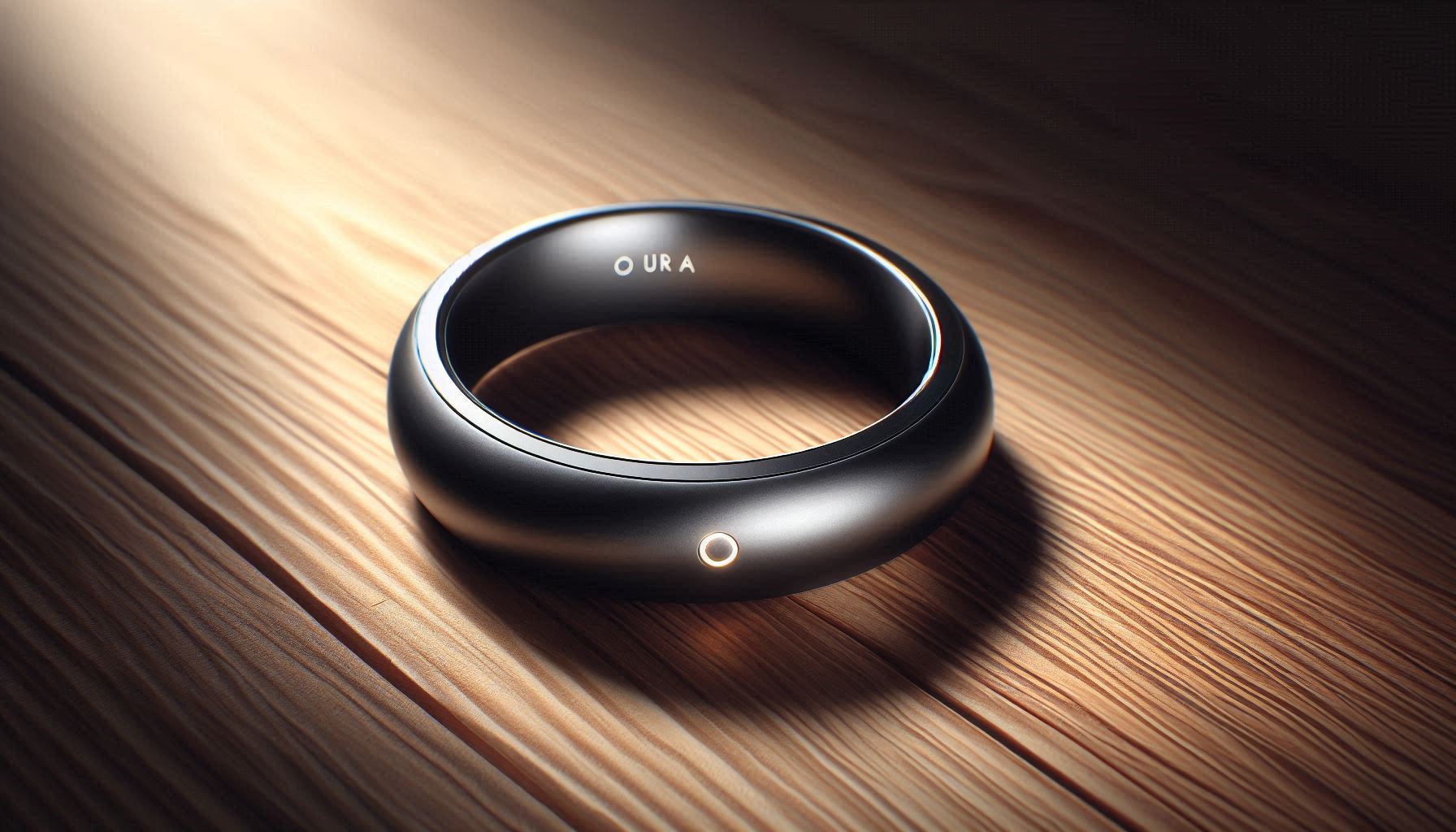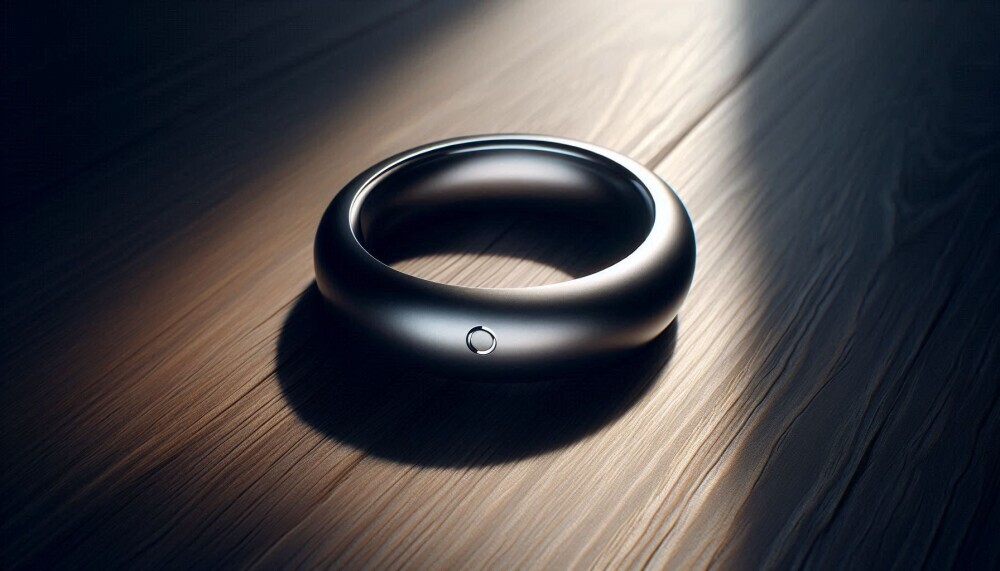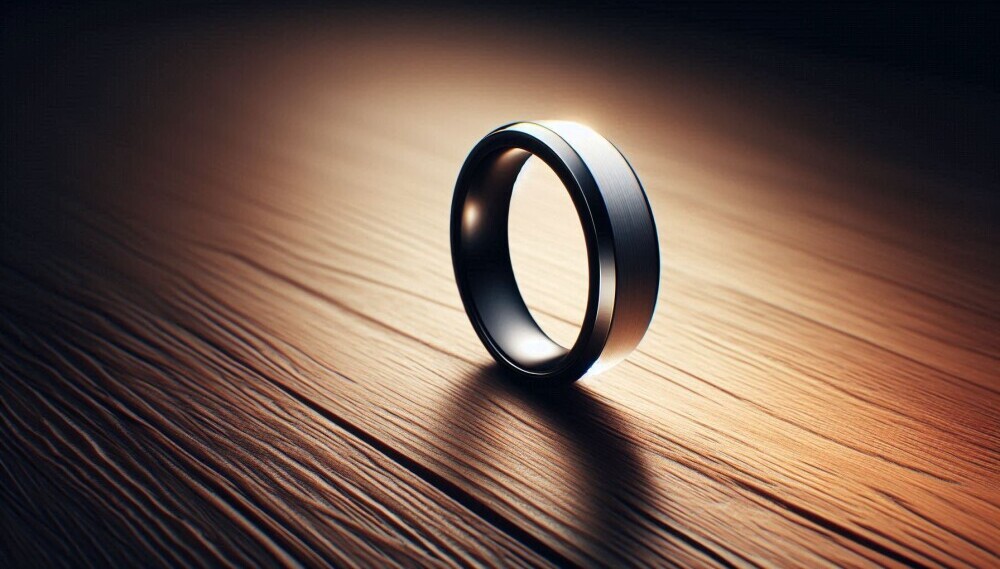With wearable health tech devices now becoming a kind of phenomenon, are users getting the best from their wearable devices? Do users consider accuracy? Just how accurate are they? In this article, we shall be looking into just How Accurate Is The Oura Ring? Are you an Oura Ring user? Please leave us a comment at the bottom of this page letting us know your thoughts on your smart ring.
Introduction
The Oura Ring is a sleek smart ring worn on your finger that tracks sleep, heart rate, body temperature and activity. Its minimal design and long battery life make it a popular choice for health conscious users who do not want the bulk of a smartwatch. But with any wearable the question remains. How accurate are the insights it provides?
In this review we dive into scientific studies user experience and performance across multiple areas including sleep staging, nocturnal heart rate, heart rate variability, activity tracking and temperature monitoring. We will explain exactly where the Oura Ring performs strongly and where you might encounter limitations. Whether you are curious about how well it matches polysomnography or how reliable its readiness score is you will find detailed analysis here.
Accuracy of Sleep Tracking
Scientific validation studies show that Oura Ring Generation 3 with the OSSA 2.0 algorithm demonstrates strong agreement with gold standard sleep measurement using polysomnography across multiple metrics . Key findings include:
- Sensitivity for detecting sleep is 94.4 to 94.5 percent, with specificity for wakefulness between 73.0 and 74.6 percent
- Overall accuracy for classifying sleep versus wake is around 91.7 to 91.8 percent
- Light sleep classification accuracy is about 75.5 percent while REM sleep accuracy reaches approximately 90.6 percent
- Oura does not significantly differ from polysomnography in estimating total sleep time time in bed sleep onset latency wake after sleep onset or time in light or deep sleep stages
Additional comparisons with Apple Watch and Fitbit show that Oura was about five percent more accurate than Apple Watch and ten percent more accurate than Fitbit in four stage sleep classification after adjusting for chance. Oura achieved higher sensitivity for deep sleep and wake detection than those devices.
Heart Rate and HRV Accuracy
Validation of nocturnal heart rate and heart rate variability parameters from Oura Ring against medical grade chest ECG devices found very low mean error and high correlations for HR and RMSSD metrics. In both five minute segments and average overnight data heart rate readings were highly accurate. RMSSD and HRV parameters showed moderate to strong correlations although these are more susceptible to motion artifact. Overall heart rate variability measures from Oura still aligned closely with physiological ECG standard accuracy is strongest while asleep and less reliable during movement PMC.
Body Temperature Tracking
Oura uses an internal temperature sensor to monitor overnight body temperature trends. While not clinically calibrated it reliably captures relative shifts in temperature for tracking menstrual cycles potential illness or circadian rhythm changes. Recent Gen 4 rings show improved accuracy and sensor integration for temperature tracking according to user reports and product reviews Glamour.
Activity and Step Tracking
In general step and calorie estimates provided by Oura are less accurate than wrist based trackers. Researchers found strong correlations at group level for energy expenditure but individual accuracy varies depending on hand placement movement and daily behaviour BioMed Central. Many users report overcounts or undercounts in step data especially compared to phone based trackers or fitness watches. Oura’s core strength remains in recovery metrics not activity monitoring.
Key Features at a Glance
- Lightweight ring design comfortable for 24/7 wear.
- Tracks sleep staging readiness activity score and temperature trend.
- Battery life of 5 to 7 days per charge depending on Gen version.
- Requires a small monthly membership fee currently around five US dollars ninety nine per month with one month free trial.
- Supports readiness score combining sleep HRV temperature and activity to guide recovery.
- Water resistant up to one hundred metres so safe for showers or occasional swimming.
Benefits
- Science based accuracy — sleep and HR metrics validated against clinical gold standards.
- Seamless user experience — the ring is discreet comfortable and less intrusive than wrist wear.
- Long battery life — typically one week without recharging.
- Insightful readiness and recovery metrics — personalised guidance based on individual baseline trends.
- Temperature monitoring — useful for women’s health sleep or illness signals.
- Consistent overnight data — continuous collection of sleep and recovery without having to remember to wear or charge daily.
Drawbacks
- Sleep stage accuracy limited — light sleep detection is around seventy five percent accurate meaning it can misclassify stage cycles sometimes.
- Activity tracking limitations — step counting and energy estimates may not match trackers worn on wrist or phone based detection Wikipedia.
- Subscription required — core features are locked behind a monthly fee leaving some users unhappy.
- No display or real time data view — you must use the app to see your data no heart rate display or on demand pacing during exercise.
- Sizing concerns — recent Gen 4 sensor design requires new sizing kit even for existing Gen 3 users to ensure proper fit.
- Possible nocebo effect — some users report anxiety triggered by low readiness or sleep scores even when they feel fine subjectively.
6 Frequently Asked Questions
1. How accurate is Oura for sleep compared to clinical devices
Studies show Oura Gen 3 tracks total sleep time sleep onset wake after sleep onset and time in light or deep sleep with less than 1 to 1.5 percent difference compared to clinical polysomnography accuracy for stage classification is highest for REM and deep sleep.
2. Does the Oura Ring accurately measure heart rate variability
Yes Oura’s HRV readings like RMSSD correlate strongly with chest ECG devices overnight error bias is low though values may vary with motion artifact during awake periods.
3. Are sleep stage metrics reliable enough to base decisions on
Oura’s staging accuracy for light sleep is around seventy five percent and deep sleep and REM staging exceed eighty to ninety percent. It is reliable for general patterns but not perfect for every night PubMed.
4. Is the membership fee worth paying
For users seeking recovery insights personalised trends sleep coaching and advanced analytics the monthly membership adds value. For casual users wanting only basic tracking the fee may feel unnecessary.
5. Does the ring perform accurate step counting and calorie burn
Oura is less accurate in step and energy tracking compared to wrist trackers. Group level trends align but individual daily variations may be off especially if hand movement is limited BioMed Central.
6. Can the ring detect when I am sick
While not medical grade Oura’s temperature sensor can highlight unusual overnight rises in temperature that may signal illness or menstrual changes. It offers trend alerts but does not diagnose.
Real User Insights
User forums often praise the ring for its insight into fatigue patterns and menstrual cycle shifts. One review described it as superior for recovery tracking but admitted step data felt unreliable when compared with smartphone tracking. Another user noted that readiness scores sometimes tracked mood or energy more accurately than subjective feelings even when sleep score seemed poor. Some users however disliked the subscription structure and felt early novelty wore off after 4 to 5 months when the ring felt repetitive.
Practical Takeaways
If your aim is to track sleep recovery, heart rate variability and temperature trends in a comfortable unobtrusive way, Oura performs exceptionally well. It does that job more accurately than many wrist based devices especially in sleep analysis. However, if you are relying heavily on step tracking workout detection or real time data during exercise you may find it limited.
Motion artefacts and body placement matter so wearing it correctly and ensuring snug fit improves accuracy. Using it consistently overnight and syncing regularly provides the best long term insights. Pairing it with other tools like a smartwatch or fitness tracker can give you real time metrics while letting Oura focus on recovery trends and sleep science.
Conclusion
The Oura Ring is one of the most accurate consumer health wearables for sleep tracking and overnight heart rate variability monitoring. Extensive validation studies confirm its reliability against clinical gold standards and show it outperforms many wrist wearables in sleep staging accuracy and recovery insight delivery. Its sleek no display design battery life and personalised readiness features make it a compelling tool for those prioritising wellness over step counts.
That said the ring is not perfect for every scenario. Its activity tracking may underperform and it lacks real time display features. The membership fee may not appeal to casual users who want only basic tracking. If you are focused on recovery sleep trends and long term biometric insight the Oura Ring is an excellent choice. If you need a more active tracker for workouts step counting and real time heart rate display a companion wearable may serve you better.
Use Oura to understand your body better not to replace medical advice. For many users it unlocks smarter rest management and useful trends over months of wear. If clarity in sleep and recovery matters more than quick step badges the Oura Ring stands out as a health companion rather than just a tracker.
Our Thanks!
Many thanks for reading this article on How Accurate Is The Oura Ring? I hope that you have found it helpful and informative and that it helps with your decision in purchasing a suitable smart ring. If you would like some extra reading, take a look at our blog! There are lots more really helpful articles on a range of different wearable health tech topics. You might like to read our related article which is titled Oura Ring Vs Fitbit: Which Fitness Tracker Wins?
Please let us know which brand and type of fitness tracker you’re using or considering purchasing in the comments section below!
**Here is a bit of transparency. Our website www.vertevia.com does contain affiliate links and Amazon links. So, if you did make a purchase through the website, we may receive a small commission. This is at no extra cost to you whatsoever. It’s just a way for you to support us as we continue to bring you top quality content**
All the best!
Eamon





